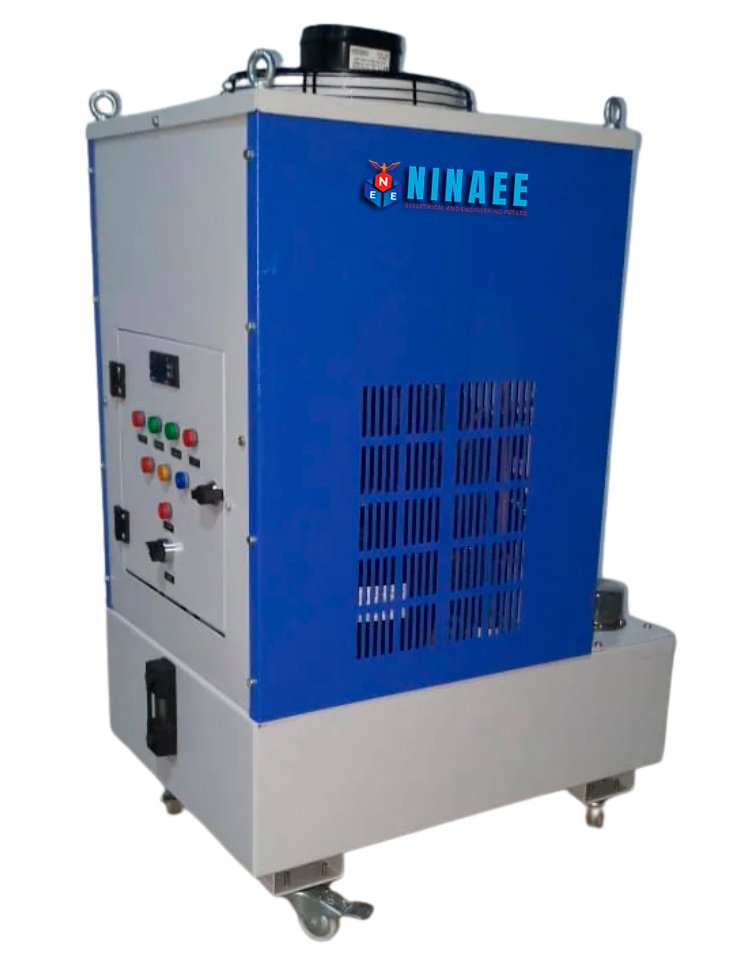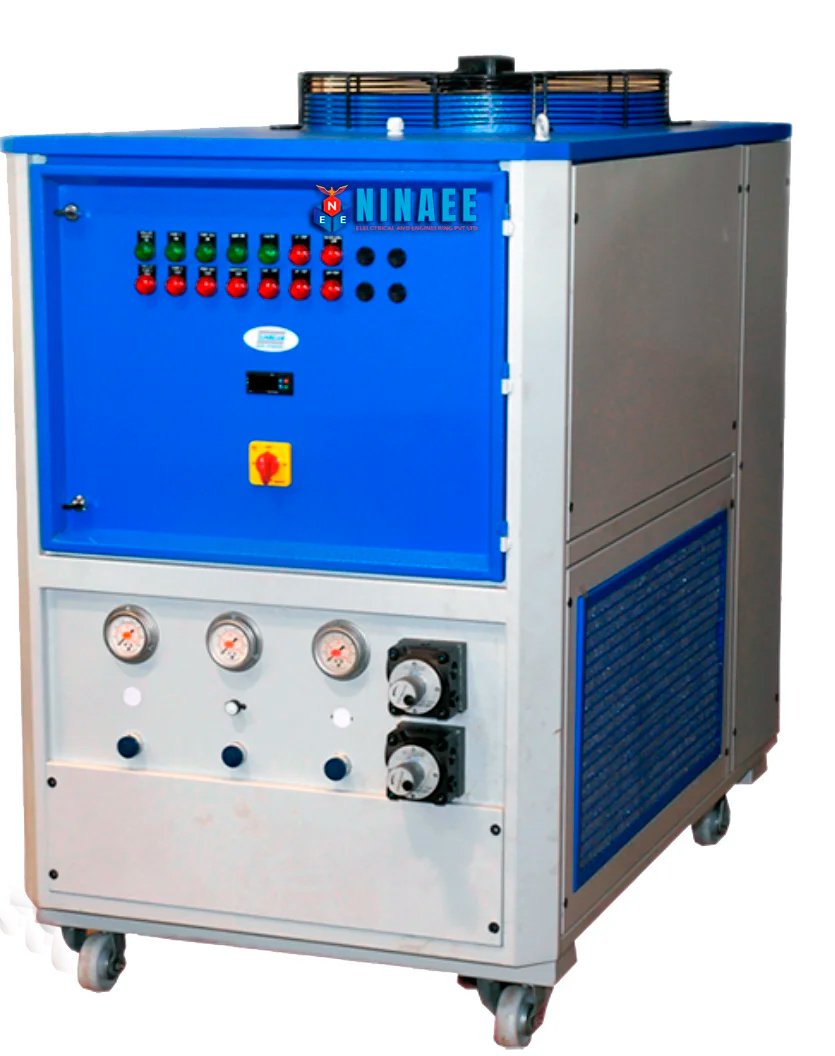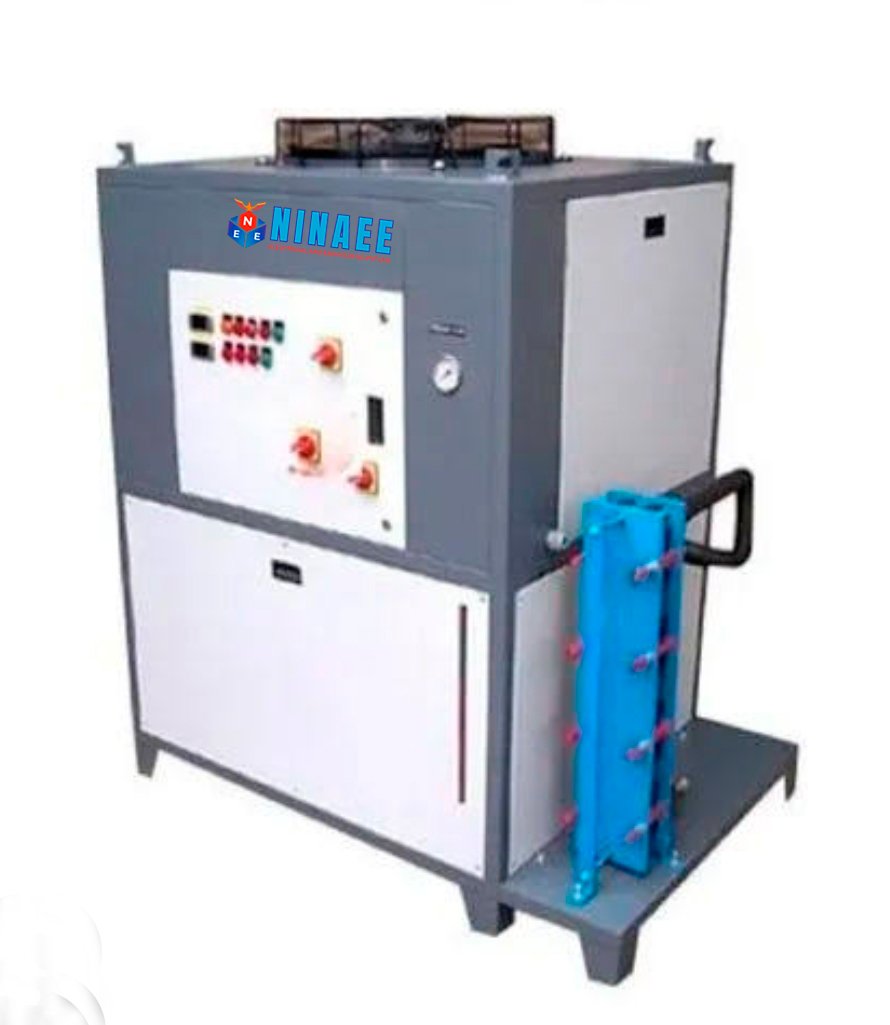


An Oil Chiller is a specialized cooling device designed to regulate the temperature of oil in industrial machinery and systems. These chillers play a crucial role in maintaining the viscosity and thermal stability of oil, ensuring the optimal performance of equipment like CNC machines, hydraulic systems, and lubricated bearings.
Components of an Oil Chiller
-
Compressor:
-
The main component that compresses the refrigerant and drives the cooling cycle.
-
Types: Scroll, Screw, or Reciprocating.
-
-
Condenser:
-
Removes heat from the refrigerant and transfers it to the environment.
-
Can be air-cooled or water-cooled, depending on the system.
-
-
Evaporator:
-
Extracts heat from the oil, cooling it effectively.
-
-
Expansion Valve:
-
Reduces the pressure of the refrigerant, causing it to cool rapidly before entering the evaporator.
-
-
Oil Pump:
-
Circulates the oil through the chiller system for consistent cooling.
-
-
Control Panel:
-
Monitors and manages the chiller’s operation.
-
Equipped with temperature controls, alarms, and safety features.
-
Working Principle
-
Oil Circulation:
-
Hot oil from the system flows into the evaporator of the oil chiller.
-
-
Heat Extraction:
-
The refrigerant in the evaporator absorbs heat from the oil, cooling it.
-
-
Refrigerant Cycle:
-
The refrigerant absorbs heat, evaporates into a gas, and flows to the compressor.
-
It is compressed, releasing heat in the condenser, and cycles back as a cooled liquid.
-
-
Cooled Oil Return:
-
The cooled oil exits the chiller and returns to the system, ready for reuse.
-
Applications
-
CNC Machines:
-
Maintain the temperature of cutting oil or lubrication oil to prevent overheating.
-
-
Hydraulic Systems:
-
Cool hydraulic oil to ensure consistent performance and avoid component damage.
-
-
Spindle Cooling:
-
Regulates the temperature of spindle oil in high-speed machinery.
-
-
Die Casting and Forging:
-
Maintains the temperature of oil used in die-casting machines.
-
-
Plastic Injection Molding:
-
Prevents overheating of lubrication or hydraulic oil.
-
-
Automotive Industry:
-
Used in testing equipment for engines and gearboxes.
-
Advantages
-
Temperature Control:
-
Precise regulation of oil temperature ensures consistent machinery performance.
-
-
Improved Efficiency:
-
Prevents overheating, extending the life of machinery components.
-
-
Enhanced Safety:
-
Reduces the risk of oil degradation or fire due to excessive heat.
-
-
Versatility:
-
Suitable for various industries and equipment types.
-
-
Energy Savings:
-
Advanced systems use energy-efficient compressors and controls.
-
